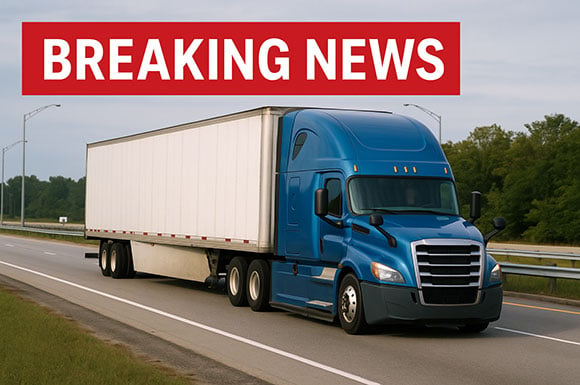FMCSA Issues Emergency Rule on Non-Domiciled CDLs
The U.S. Department of Transportation (DOT) and the Federal Motor Carrier Safety Administration (FMCSA) have issued an emergency rule that changes how states issue non-domiciled commercial driver’s licenses (CDLs) and commercial learner’s permits (CLPs). The rule was published on September 29, 2025, and took effect the same day.
Why the Rule Was Issued
DOT Secretary Sean Duffy called the move a response to a “national emergency.” Federal audits found major problems in how some states issued CDLs to foreign drivers. Officials also linked the issue to a series of deadly crashes in 2025.
FMCSA reported five fatal crashes since January involving non-domiciled CDL holders. In one case in Florida, a driver without legal status caused a crash that killed three people. In Texas, a March crash involving 17 vehicles killed five people, including two children.
California auditors found that about one in four non-domiciled CDLs were issued incorrectly. Some licenses were still valid years after the driver’s legal status had expired. Similar issues were found in Colorado, Pennsylvania, South Dakota, Texas, and Washington.
New CDL Requirements
The rule sharply limits who can get a non-domiciled CDL. Only foreign workers with specific visa types now qualify:
- H-2A agricultural worker visas
- H-2B temporary non-agricultural worker visas
- E-2 treaty investor visas
Applicants must show an unexpired passport and an I-94 or I-94A form tied to one of these visas. States must also check each applicant’s status through the Department of Homeland Security’s SAVE system.
Work permits alone are no longer enough. This means drivers covered by DACA, asylum, or refugee status can no longer apply.
FMCSA estimates that about 200,000 current drivers hold non-domiciled CDLs. Over the next two years, most will lose their eligibility when licenses come up for renewal. Going forward, only about 6,000 new drivers a year are expected to qualify.
New Rules for States
States that issue non-domiciled CDLs must now:
- Stop issuing new licenses until they meet the new standards
- Require drivers to renew in person each year (no online or mail renewals)
- Match license expiration dates with the driver’s visa, or set them to expire in one year
- Keep application records for two years
- Mark all licenses clearly as “non-domiciled”
- Downgrade CDLs if the driver loses visa eligibility
California faces the largest penalty. The state has 60,000 non-domiciled CDLs, and FMCSA found 25% were invalid. Duffy warned that California could lose $160 million in federal highway funds if it does not comply within 30 days. Other states could also face penalties or lose the right to issue non-domiciled CDLs if they fail to follow the rules.
Industry Reaction
The changes will reduce the number of eligible drivers by almost 95%. FMCSA said the impact on freight movement will be limited because non-domiciled drivers make up only about 5% of active CDL holders.
Secretary Duffy said the supply chain will not suffer. “We have enough truckers to meet the demand in the industry,” he stated.
The American Trucking Associations (ATA) supported the rule. In a statement, ATA said: “Safety and compliance aren’t optional. When one state takes shortcuts, it puts everyone at risk: other drivers, law-abiding carriers, and the public at large.”
ATA also pointed out that better enforcement should be paired with workforce growth. The group highlighted new programs to fund CDL training through 529 savings plans and Pell Grants. It also supports opening interstate trucking to qualified drivers as young as 18 through strict training programs.
What Happens Next
The rule is in effect immediately. FMCSA skipped the normal notice-and-comment period, saying advance warning could have led to a rush of unqualified applications.
However, the rule does include a 60-day comment period for possible adjustments. States are expected to update their licensing systems right away, and carriers should prepare for stricter document checks on non-domiciled drivers.
FMCSA Chief Counsel Jesse Elison summed up the agency’s position: “States will now be required to use the federal immigration database to verify an applicant’s lawful status for every single issuance and renewal of a non-domiciled CDL. No exceptions.”
Related Articles:


